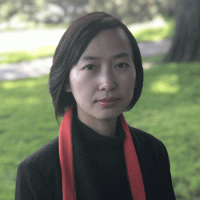Wilson China Fellowship Conference 2021
Please click on the word “Agenda” above for full details of each panel, including the list of speakers.
Over the past year, the 2020 Wilson China Fellows have undertaken policy research on a range of vital issues relevant to the rise of China and the future of U.S.-China ties. From February 3rd to the 4th, our Fellows publicly presented and debated their findings on topics ranging from international security to the environment in order to address important policy questions, such as:
- What does China’s approach to domestic security and surveillance in Xinjiang mean for the international system? How will its exports of this technology impact the world at large?
- What role does China’s influence play in global norms, governance, and policymaking in international institutions, especially pertaining to emergent issues such as big data, internet governance, and “new frontiers”?
- How does China’s assertive foreign policy impact security along its contested periphery? What is the extent of Chinese influence in Pakistan, the state of its competition with India, and the future of Taiwan's growing ties with Japan and the United States?
- What is the impact of China’s Belt and Road Initiative on the environment and geopolitics in Southeast Asia? How do these investments affect China’s influence in the region?
- To what extent are the United States and China locked into competition and what role does misperception play in their rivalry? What are China's intentions and strategy towards the South China Sea and its other vital national interests?
Select Quotes
Ambassador Stapleton Roy:
“We think about change in China in much too short a timeframe. This is what I call the mistake of proving that grass does not grow.”
“China’s communist rulers are struggling to manage the number one contradiction in China, which is that between its modernized economy and society, and its refusal to modernize its pre-modern political system. This goes back to my point at the beginning: all modern political systems are based on the concept that power corrupts and must be checked and balanced.”
“An all too familiar flaw in American strategic thinking is our tendency to define objectives that involve domestic changes in other countries that are beyond the reach of foreign policy or even military interventions, to achieve.”
“The United States and China have both changed significantly in recent decades and the assumptions of the past will no longer serve us in the future. This is a giant problem for us, because we want to recapture the role that we used to play, and in my judgement, the world has changed in ways that mean we must exercise our influence without thinking of ourselves as the leader that other countries—like-minded countries—will automatically follow.”
Darren Byler:
Approximately 1 out of every 15 adult Uighur, Kazakh, and Hui people are in detention in Urumqi […] approximately 73% of adult ethnic minority population members have been assessed during a given week — and this is in 2018, 2019— as many as 50% have their phones scanned in a given week. As many as 25% have home visits during a given week […] typically the relatives of people that are in the camps or in prison.”
“Really what I’m seeing in the data is a sort of a rise of a counterterrorism fever, a kind of campaign that’s organized and orchestrated that everyone is buying into.”
“Xinjiang is a police state to a significant degree—that the level of policing is similar to that of East Germany before the fall of the Berlin Wall. Other places in China there is also a significant police presence but it’s not that level.”
Christopher Colley:
“The political left in India has always been somewhat skeptical of the American role and of American attempts to woo India. Importantly, the political left played a significant role from 2004-2014 […] the United States needs to not only pay attention to domestic Indian politics but has to learn how to work with multiple political parties that are somewhat skeptical of American intentions.”
“Chinese analysts tend to see India as a “weak link” in things like the Quad — the grouping of Australia, Japan, the United States and India— on its own, many Chinese analysts and scholars do not see India as a credible threat. However, they quickly point out that when combined with the United States this becomes a serious issue for China that must be addressed.”
“There are several key events over the past 7 or 8 years that have contributed to worsening perceptions of China in India. In 2013, 2014, 2017 and most recently this past summer, there was significant border infractions […] There were live fire exercises by the Chinese navy in the Indian —northern Indian Ocean— in 2017 […] All this is contributing to a much more positive view of the United States in India.”
Jessica Liao:
“My research shows that the Global South is the key target of many of BRI’s green initiatives. However, I also argue that green mercantilism is more about economic and political interests than environmental benefits. Therefore the Green BRI has been ineffective in promoting its stated goal of sustainable development in the Global South. In fact, environmental governance is often put on the back burner of the BRI’s new initiatives, especially at the implementation level.”
“Beijing’s green foreign aid has distinctive Chinese characteristics. For example, diplomatic goals often trump environmental protection as a policy priority. Efficacy problems also exist in many green programs, such as requirements for Chinese content in procurement or trade promotion. Moreover, some green foreign aid was delivered in the form of surveillance assistance for hydropower dams in Southeast Asia or training programs for environmental law enforcement, which seems to promote more of an environmental-infused authoritarian state, rather than environment protection itself.”
“Currently, China relies primarily on regulations in encouraging its banks and firms to be environmentally oriented. But real financial incentives for renewable or green BRI projects is meager, if not, non-existing.”
Oriana Skylar Mastro:
“Certain nations have been given a status called “Archipelagic nations” that means if they are a grouping of islands, that the waters in between those islands are […] considered internal water—you cannot sail through them for security reasons […] China claims that the South China Sea islands make it an archipelagic nation.”
“I would say the specificity of what they [China] want is very clear. What is not specific, is the timeline. In no place do I see any leader saying that this is going to happen anytime soon, maybe let alone at all. They just have these claims, but there’s no specificity of the timeline which I take is a fact that they’re pretty risk averse actually—at achieving these goals.”
“Most speeches about the South China Sea were about cooperation. The content, of most standard politburo members, except one—and that is Xi Jinping. The majority of his speeches—the majority of all content that is about conflict in the South China Sea, came from Xi Jinping who is the top leader in China. And so I would argue based on the Chinese system, we should listen more to him than to anyone else.”
Schedule
Wednesday, February 3, 2021
10:00am – 11:00am ET: Keynote Speech
12:30pm – 02:00pm ET: The Chinese Authoritarian Model and Its Global Impact
02:30pm – 04:00pm ET: Global Norms, Governance, and Chinese Policymaking
Thursday, February 4, 2021
10:00am – 11:30am ET: China’s Foreign Policy along a Contested Periphery
12:30pm – 02:00pm ET: The BRI and Chinese Influence in the Global South
02:30pm - 04:00pm ET: Is a New Cold War Inevitable? Chinese Intentions and the Role of Misperception.
Panelists

Introductions


Keynote Speaker

Founding Director Emeritus, Kissinger Institute on China and the United States
Moderators




Panelists

Associate Professor at the Lyndon B. Johnson School at the University of Texas at Austin.

Post-Doctoral Fellow at the Center for Asian Studies, University of Colorado Boulder

Associate Professor, the School of Politics and International Relations at University College Dublin

Assistant Professor at McGill University and Fellow at the Centre for the Fourth Industrial Revolution of the World Economic Forum.

GLP-Ming Z. Mei Chair of Chinese Economics and Trade, Hamilton Lugar School of Global and International Studies and the Department of East Asian Languages and Cultures at Indiana University.

Assistant Professor, Department of Strategic and Operational Research at the U.S. Naval War College

Associate Professor of East Asian International Relations, Hamilton Lugar School of Global and International Studies, Indiana University and Director of the “21st Century Japan Politics & Society Initiative” (21JPSI).

Assistant Professor of International Security Studies at the United States Air War College.

Assistant Professor at the U.S. Army War College and Adjunct Fellow at Pacific Forum.


Associate Professor of Political Science, North Carolina State University.

Center Fellow at Stanford University’s Freeman Spogli Institute for International Studies (FSI)

Assistant Professor, United States Air Force Academy, Colorado Springs, Department of History

Assistant Professor of International Relations, Pardee School of Global Studies, Boston University
Hosted By

Indo-Pacific Program
The Indo-Pacific Program promotes policy debate and intellectual discussions on US interests in the Asia-Pacific as well as political, economic, security, and social issues relating to the world’s most populous and economically dynamic region. Read more


Kissinger Institute on China and the United States
The Kissinger Institute works to ensure that China policy serves American long-term interests and is founded in understanding of historical and cultural factors in bilateral relations and in accurate assessment of the aspirations of China’s government and people. Read more


China Environment Forum
China’s global footprint isn’t just an economic one, it’s an environmental one. From BRI investments in Africa and Asia to its growing presence in Latin America, understanding China’s motivations, who stands to gain - and who stands to lose - is critical to informing smart US foreign policy. Read more


History and Public Policy Program
A leader in making key foreign policy records accessible and fostering informed scholarship, analysis, and discussion on international affairs, past and present. Read more


